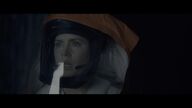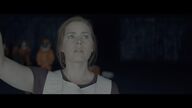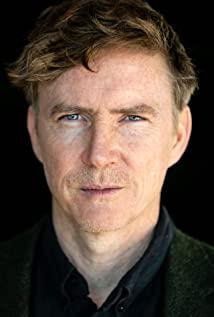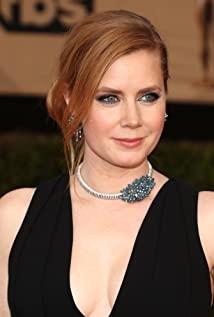Those traditional stories of good and evil always follow this pattern: the world is beautiful, evil invades, heroes fight, eventually defeat evil, and the world is beautiful again, as those critics say, essentially this is a conservative narrative because it always tends to keep the world as it is - Ted Jiang
Years from now, academia and the Academy of Motion Picture Arts and Sciences will probably regret not giving Arrival the same (or even more) attention given to La La Land and Moonlight, which itself even goes back to special. De Jiang's original book is so shrewd, even cunning, that he employs an ingenious parasitic relationship that wraps Camusian existentialist references in the film's recurring structuralist linguistics - once the antithesis of existentialism .
(1) What is a movie? ——A Research on Linguistic Phenomenon of Film Media Taking "Arrival" as an Example
Whether Ted Jiang's original book (novel - English or other translated language) or Denis Villeneuve's film (film - film language) is a process of language presentation, the literal text is too typical, so this chapter will focus on Discuss the non-mainstream linguistic phenomenon of film text.
According to this formula obtained in Saussure's "General Linguistics Course": language = language sign + speech, if the film is regarded as a language phenomenon, then as a film: "language sign" is vacant. But Christian Metz still considers film as a form of language: although film does not have a fixed language sign, film is composed of a single shot, and this shot can be regarded as a sentence or multiple sentences. Therefore, it is not constructed in grammar, but in their interaction.
Let's analyze a shot near the opening of "Arrival":
It's a long, slow-moving shot (although not that "long" at all), the main element is a woman, and the space she's in - the hallway, but what it means is a woman, a hallway, these two symbol? Without common sense, the answer is of course "no" directly from the language hints above, because I wrote "the space where she is" before, it means "the woman is in the corridor" and the way of "place" is not ugly Out, it is "walking", so it is "this woman is walking in the corridor" and according to the context set before, this woman is called Louis Banks, and her child has just passed away, so the movement of the camera and the composition of With a kind of "feeling" (this term seems to be invented by Deleuze, Deleuze does not agree with the theory of film semiotics, but the author borrows it here for the time being), so, this sentence continues to improve, it is "Lewis Bank As she walks desperately down the hallways of the hospital, hours before her child died" does it feel like it belongs at the beginning of a classical narrative novel? It can even be extended indefinitely to expand the simple emotional expression of "despair", which will be used as a sentence expansion exercise for elementary school students, and may have the sour smell of some popular Victorian novels, so it will not continue.
Metz further demonstrated the thesis of "What is film?", and proposed the difference between "film" and "film": film is the purpose of film, film is the medium of film, and the audience, through watching film, leads to the specific content of "film". Refer to the information, and even use the "film" as a representation to penetrate into its connotation. The latter is the task of almost all film critics.
The transition from film to film is a process of encoding, and the two correspond to linguistic "speech" and "language", "signifier" and "signified".
As Soviet scholars pointed out: "montage" exists as the inner logic of arranging films, and works together with the inner elements of other film languages.
As in the previous example: the previous series of montages of her and her daughter provide the "context" for this.
Let's look at the two previous examples:
The speakers for I Love You and I Hate You above were filmed by two actors, but are juxtaposed with an inherent logic through the montage to suggest that the two are actually the same person (Louisa's daughter). Hannah) at different times.
Let's look at the interior of the two shots. The reason why the two sentences Love and Hate are very convincing lies in their lighting and tone. It is also a close-up close-up shot: the front is in a soft and balanced environment, and the back is relatively cold. , the speed in the front is slower, and the speed in the back is fast and angry.
These are all part of the language of film. In a broad sense: as long as it can convey story information, it can be called film language.
(2) Remake and Translation - The Language Style of "Arrival" and "Story of Your Life"
There are some sentences in the original book "Stories of Your Life" that are worth noting. Let's take the Chinese version as an example.
"I still remember that day in the future, the summer when you were sixteen."
"In the future, when you're in your second year of high school, the two of us will have a conversation. I remember those words, it was a Sunday morning, and I was scrambled eggs... You would talk and laugh, tell me about your previous party one night”
These sentences are grammatically free of language problems, but can produce a disturbing perception—unease that is different from the notion of linearity.
However, Chinese words themselves do not have the tense system in English. Note that in the first sentence "that is the summer when you were sixteen" in "that is" can be "It is" from an English point of view It can also be "It was", for the same reason: "It Will be" is not impossible, but "Was" in the original book can be completely determined that it is in the past tense. In fact, it is writing the future tense in the past tense.
Second sentence: The reason it is frightening comes from the fact that what was supposed to belong to an occasional everyday stream is presented in a future tense grammar. It creates a kind of closed fatalism. These will be discussed in more depth later.
Even a story of the classical narrative type is called a "closed narrative" in that it ends at the end as the eventual end and the protagonist no longer has the value of being "viewed by the audience." For example, the famous ending of "The Truman World": when Truman said at the end of "The World", "If I never see you again, I wish you good morning, afternoon and good night", after he left the studio After that door, after an audience member said "what to watch next?", the later experiences of these people are not shown in the film, but there is still a certain open relationship. What will happen after Truman? Did those viewers find other shows? These are all open. Closed is nothing but the main event that has been resolved
More extreme, in some commercial series, such as "007", and this year's "Guardians of the Galaxy Vol. 2", there is often a line after the end of the film: XXX Will return in...
These all suggest their "open" nature.
But both "Arrival" and the original "Story of Your Life" are a kind of suffocating "pure closure". In the context of its past-future inversion, after the main event is resolved, the protagonist The fate of the future is also closed, as the audience can see, even a little too tragic. And in this context, the image of the "absurd hero" can be created (this term will be mentioned later)
Just like it is translated from English to Chinese: the remake of "Story of Your Life" into "Arrival" also faces the problem of "language". Although both are English language modes, the text language-movie language is even more severe than the English-Chinese break.
There is also a voice-over-like structure in "Arrival", but it always uses the past tense, and there is no tense inversion in the original work. Renueva adopts a flashforward structure, which is not a classical flashforward connected by sound bridges, but a flashforward similar to a traditional flashforward. The lighting style or the number of elements in the mirror suggest the timeline. change.
In addition to the grammar, the change of "Arrival" to the original lies in the narrative mode. "The Story of Your Life" is more a presentation of theoretical speculation and argument than the narrative function, and it is disturbed by the above-mentioned arguments. The daily flow and tense inversion are interrupted. However, "Arrival", as a discourse of a narrative film, certainly cannot be presented in this way under the framework of "science fiction" type films proposed by Hollywood. It "constructs" characters, motivations and After the conflict there needs to be a crisis (a situation where the characters are in a dilemma) and the characters make choices in the crisis, so a character not in the original - General Shang was created, and the lighting design that identifiably hints at the timeline is related to " War does not create heroes, it only creates orphans and widows.” The political implications will be left aside for now, but in Chapter 4 we will discuss its reinforcement of Camusian existentialism.
(3) From Roland Barthes to Camus--Double-layered ideographic system and the absurd hero Sisyphus
Since film is introduced into the category of language, it naturally conforms to the double-layered ideographic system given by Roland Barthes in "The Elements of Semiotics". Films move from signifier to extension to connotation. Using various film languages, Arrival shows, roughly speaking, a female linguist deciphering the language of the alien "heptapod" and learning about her future and the alien's intentions and preventing an imminent The story of the war that happened, but that's only what the first layer of extension refers to.
The connotation of the story is also the meaning of the second layer: it is also a content about linguistics, that is, the Sapir-Wolf hypothesis. And, through its linguistic connotation, as well as its grammar and film language, these remind the audience mainly of the linguistic phenomenon of film.
The Sapir-Wulff hypothesis is an argument for the connection between thinking and language: because all human languages are linear, people's perception of time is also linear.
Linearity is the general knowledge in human experience, and the advent of the heptapod frees people from this experience. It is with this that the core of existentialism has a "parasitic" relationship. The "liberation" on the experiential level can also be read as "absurd experience".
In fact, Arrival has a lot of interesting parallels with Camus' The Plague.
In The Plague, Camus depicts a small town of Achran in the midst of a plague, as quoted earlier in Daniel Defoe's famous quote: "The Plague" is seen as a sort of symbol. The beginning, before the introduction of Ahran and the plague, depicts the condition of Ahran like a non-fiction literature - it is even eternal.
"It should be admitted that the city itself is ugly. It looks very peaceful... How can one imagine a city, for example, without pigeons, trees, and gardens?"
"In our small town, maybe it's the climate, it's all happening at the same time, with the same air, fanatical, absent-minded. That is, people get bored in the city, but try to make themselves habitual, Our compatriots work hard, always to get rich."
It is not difficult to see from these statements that they live in the illusion of "essentialism", which is what Sartre called "Bad Faith".
The coming plague made them realize the absurdity of their own existence.
Let's look at the scenes from the 4th to the 6th minute of "Arrival", which are about Lewis' activities before he learned that the aliens "arrived".
In these few shots, Louis's movements are like a kind of machinery: walking up the steps, walking to the classroom, and starting a lecture, "Where is every one" she echoes the imbalance of space. But at this time it is still a kind of classical rationality, essentialism is at work, and it is obvious that she is continuing to lecture, so she still follows the movement of mechanization. There is no self-thought about the meaning of existence. She is something alienated by "social identity". She is the professor, it can't be anything else.
Or to put it another way: Before the alarms "invade" the classroom, she was "acting" her social identity.
In "The Plague", when the residents of Ahlan repeatedly found dead mice, the word "plague" was kept secret.
Both the plague and the arrival of the heptapod represent the disintegration of empiricism, the "forced" self-reflection. They belong to a kind of "absurd experience", an absurd experience of alienation from the outside world.
The absurd experience means the disintegration of the linear concept and separation from the "materialized" essentialism, she is endowed with new attributes, new essence, no longer teaching language, but "learning language" and "deciphering language"
These are just from the outside world. In the context of "escape", it is Louis himself who creates and defines Lewis' existence. Otherwise, it still stays at the level of materialized mechanical movement.
Louis Banks, played by Amy Adams, has the same "absurd hero" characteristics as Camus' Meursault and Rieux. The precondition of "Absurd Hero" is "Absurd Man". The absurd is one who "does nothing for eternity, but does not deny eternity" (The Myth of Sisyphus)
With so much pretense and parasitism about linguistics, "Arrival" actually argues the question: when free will is almost impossible, is it still possible to choose free will?
Louis Banks' choice undoubtedly provides a methodology: she recognizes the "absurd," acknowledges what she sees, and chooses to continue her fateful life as a response to and contempt for fate. As Romain Rolland defines heroism, she loves her own resistance, she creates her own meaning, along with those "beautiful" moments.
This is the definition of "free will" under "determinism", a specific situation creates a person, and a person can choose to treat a specific situation in his own way, to resist the absurd, and to respond to existence with "for-itself".
"The Plague" ends: "The plague bacillus is immortal, it can sleep in furniture and clothes for decades, it can wait patiently in rooms, cellars, suitcases, handkerchiefs and wastepaper piles, maybe one day, Another misfortune, or another lesson, the plague god will once again activate his swarms, and drive them to choose a happy city as their place of burial. "
Arrival seems to be a return to traditional Hollywood family values that seem to be taken for granted, but they are not. Just as the end of The Plague is not a "good" ending.
I resist, so I exist.
(4) Why Camus?
We have demonstrated how Advent is parasitic as existentialism in linguistics, so now the question arises; why must it be emphasized as Camusian rather than Sartre? Despite borrowing a lot of Sartre's theory in the argument?
In this way, we can no longer stop the General Shang that was not mentioned in Ted Jiang's original work mentioned in the previous article. Now that his place in the structure of the story has been demonstrated, this chapter will demonstrate his symbolism: without referring specifically to a "specific" state, generally speaking, modern state apparatuses are characterized by Machiavellianism (business It is its spokesperson, humanized Machiavellianism), which is to use all possible means, including violence, to protect its own interests. That is to say, concrete, metaphysical "resistance".
Sartre supports and even intervenes in this metaphysical "resistance". War hinders people's absolute free will and prevents people from "self-selection". Therefore, in order to "liberate" all mankind, Sartre supports the existence of war , He became interested in Marxism and maintained an ambiguous state of relations with the French Communist Party and the Soviet Union. He was not a socialist, but a "communist fellow traveler".
But Camus's focus is not on society but on the individual, and his resistance is self-inflicted, a metaphysical "resistance" that, as said in the previous chapter, is "free will under determinism."
The methodological difference between the two is the only way to distinguish between the two existentialisms. As for the two existentialisms of Kierkegaard and Heidegger, it seems to have denied the transcendental existence of "God" at first Give way to words, so the former has been proven to be non-existent, while the latter does not respond to the identity or contradiction of technology and man
In "The Story of Your Life", Ted Jiang has shown potential Camusian connotation, while Denis Villeneuve responded to Sartre's existentialism by constructing dramatic conflict, strengthening its "Camus" .
In other words: the heptapod is Camus.
references:
Jean-Paul Sartre: "Existence and Nothingness", Shanghai, Life·Reading·Xinzhi Sanlian Publishing House, 1st edition in September 2014
Liu Yunzhou: "Research on Film Narratology", Beijing: Beijing United Publishing Company, 1st edition, June 2014
Robert McKee: "Story", translated by Zhou Tiedong, Tianjin, Tianjin People's Publishing House, 1st edition, January 2016
Ted Jiang: Arrival, translated by Li Keqin, Nanjing, Yilin Publishing House, 1st edition, March 2017
Ted Jiang: Stories of your life and others, Orb Books, 1st edition, July 2003
Albert Camus: The Plague, translated by Liu Fang, Shanghai: Shanghai Translation Publishing House, 1st edition, August 2013
Albert Camus: The Myth of Sisyphus, translated by Shen Zhiming, Shanghai: Shanghai Translation Publishing House, 1st edition, August 2013
Know almost
Baidu Encyclopedia
View more about Arrival reviews











